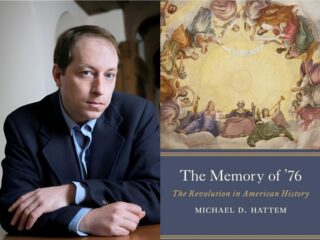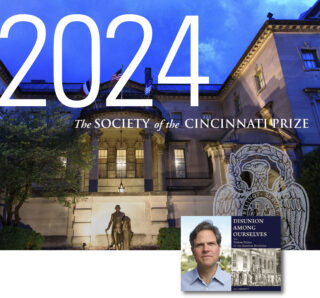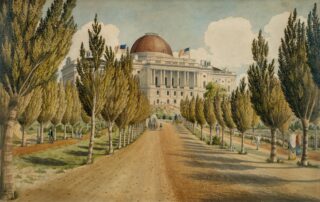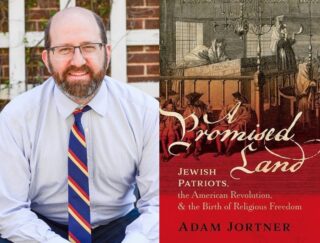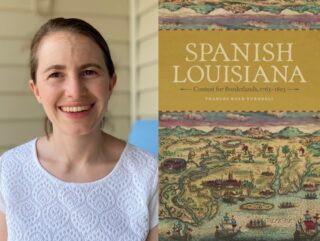Supporting scholarship and promoting popular understanding of the American Revolution is central to the work of the American Revolution Institute. The Institute welcomes distinguished scholars and authors to share their insights and discuss their latest research with the public at Anderson House through lectures, author's talks and panel discussions. The Institute also hosts a variety of other historical programs throughout the year, including our Lunch Bite object talks, battlefield tours, special Anderson House tour programs and other events. Many of the events we offer are free.

September 2024
Author’s Talk—Memory of ’76: The Revolution in American History
Americans agree that their nation’s origins lie in the Revolution, but they have never agreed on what the Revolution meant. For nearly 250 years, politicians, political parties, social movements, and a diverse array of ordinary Americans have constantly reimagined the Revolution to fit the times and suit their own agendas. Drawing from his new book, historian Michael D. Hattem reveals how conflicts over the meaning and legacy of the Revolution—including the Declaration of Independence and the Constitution—have influenced the most…
Find out more »Special Event—The 2024 Society of the Cincinnati Prize Presentation & Reception
The 2024 Society of the Cincinnati Prize honors Eli Merritt, M.D., M.A., for his book Disunion Among Ourselves: The Perilous Politics of the American Revolution (University of Missouri Press, 2023), which explores the politics of the Continental Congress during the American Revolution. Far from a harmonious collaboration, the Continental Congress during the Revolutionary War was so filled with political strife that the delegates feared the war would end in disunion or civil war. But instead of disbanding, these founders managed to…
Find out more »October 2024
Lecture—The Marquis de Lafayette Returns: A Tour of America’s National Capital Region
Against the backdrop of a tumultuous election, a beloved hero of the American Revolution returned to America for the first time in forty years. From August 1824 to September 1825, the marquis de Lafayette traveled through the United States, welcomed by thousands of admirers at each stop along the way. Although the tour brought him to each state in the Union, the majority of his time was spent in Washington, D.C., Virginia and Maryland. Public historian Elizabeth Reese traces Lafayette's…
Find out more »Author’s Talk—A Promised Land: Jewish Patriots, the American Revolution, and the Birth of Religious Freedom
Jews played a critical role both in winning the American Revolution—fighting for the patriot cause from Bunker Hill to Yorktown—and in defining the republic that was created from it. As the most visible non-Christian religion, Judaism was central to the debate over religious freedom in America at a critical juncture. Except for Philadelphia, the birthplace to the Declaration of Independence and a core of resistance, every city with a synagogue fell to the British during the war. Jewish patriots throughout…
Find out more »Author’s Talk—Spanish Louisiana: Contest for Borderlands, 1763-1803
The Spanish era in the Lower Mississippi Valley, a borderland contested by empires and the region’s diverse inhabitants following the Seven Years’ War, was characterized by tremendous transition as the colony emerged from the neglect of the French period and became slowly but increasingly centered on plantation agriculture. The transformations of this critical period grew out of the struggles between Spain and Louisiana’s colonists, enslaved people and Indians over issues related to space and mobility. Many borderland peoples, networks and…
Find out more »